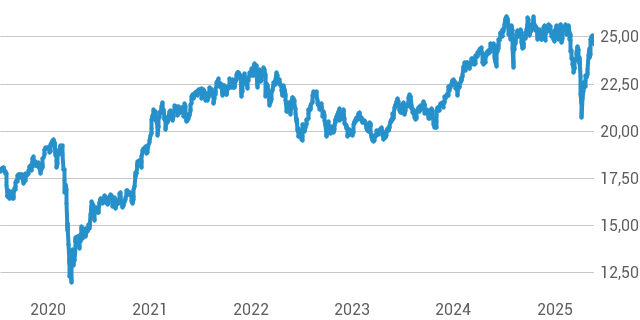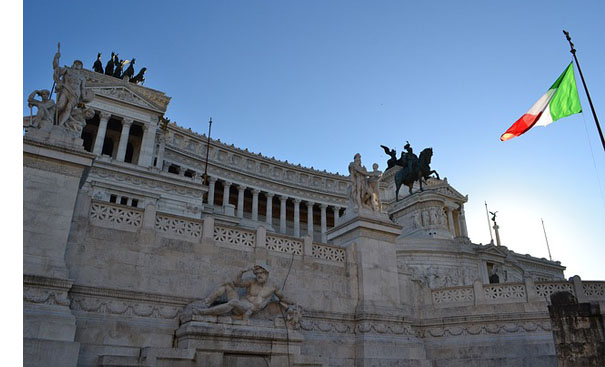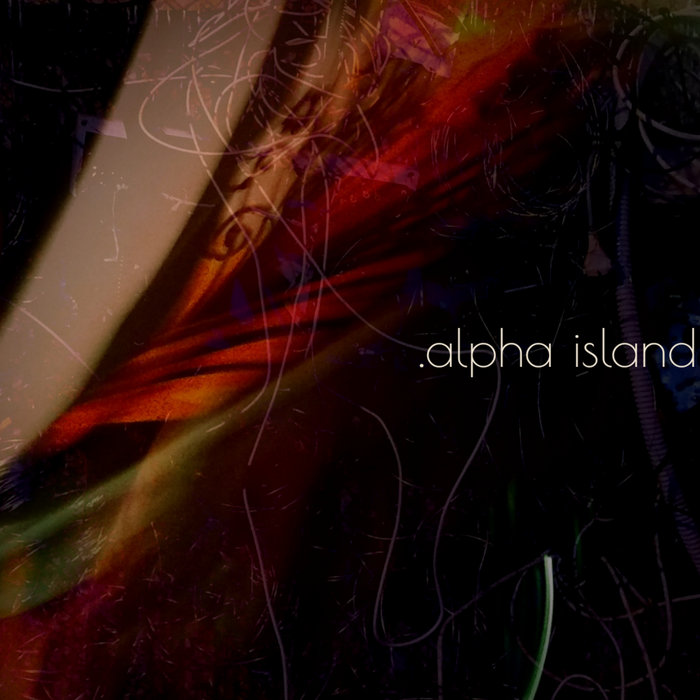Bangladesh In Europe: Renewed Focus On Collaboration And Growth

Table of Contents
Booming Trade and Investment Opportunities between Bangladesh and Europe
The economic relationship between Bangladesh and Europe is dynamic and robust, fueled primarily by Bangladesh's thriving textile industry and the growing interest of European investors in diverse sectors of the Bangladeshi economy.
Textile Industry Dominance and Diversification
Bangladesh is a leading global exporter of ready-made garments (RMG) to Europe, a position built on decades of industry expertise and a competitive cost structure. However, the country is actively diversifying its textile exports beyond RMG.
- Growth beyond RMG: Bangladesh is focusing on increasing exports of jute products, leather goods, and other value-added textile items to tap into the growing demand for sustainable and ethically sourced products in European markets.
- EU Trade Agreements: Trade agreements like the Everything But Arms (EBA) initiative have significantly benefited Bangladesh's textile exports to Europe. Further leveraging these agreements and exploring new trade partnerships will be crucial for sustained growth.
- Trade Volume Growth: Statistics show a consistent upward trend in bilateral trade volume between Bangladesh and Europe, indicating a strong and growing economic relationship. (Note: Specific statistics should be inserted here, sourced from reputable organizations like the WTO or Eurostat).
Attracting European Investment in Key Sectors
Beyond textiles, Bangladesh is attracting significant European investment in other key sectors. This influx of Foreign Direct Investment (FDI) is crucial for infrastructure development, technological advancement, and sustainable economic growth.
- Infrastructure Development: European companies are investing in port modernization, road construction, and other crucial infrastructure projects, boosting Bangladesh's connectivity and trade facilitation capabilities.
- Renewable Energy: With a growing focus on sustainability, Europe is investing in renewable energy projects in Bangladesh, such as solar and wind power, helping the country diversify its energy mix and reduce its carbon footprint.
- Technology Sector: European companies are investing in Bangladesh's burgeoning technology sector, creating opportunities for skill development and technological advancement. This includes investments in software development, ICT infrastructure, and digital services.
- Government Initiatives: The Bangladeshi government is actively implementing policies and initiatives to attract FDI, creating a more favorable business environment for European investors.
Addressing Trade Barriers and Enhancing Logistics
Despite the positive momentum, challenges remain. Improving logistics and reducing trade barriers is vital for further growth.
- Trade Tariffs and Customs Procedures: Streamlining customs procedures and reducing tariffs on specific goods will further enhance trade flows between Bangladesh and Europe.
- Supply Chain Improvements: Investing in better infrastructure, technology, and logistics management will help improve efficiency and reduce costs throughout the supply chain.
- Collaborative Efforts: Both Bangladesh and the European Union are collaborating to address these challenges through joint initiatives focused on improving trade facilitation and regulatory cooperation.
Strengthening Development Cooperation and Aid Partnerships
Beyond trade and investment, the relationship between Bangladesh and Europe is strengthened by significant development cooperation and aid partnerships.
EU Development Assistance Programs
The European Union provides substantial development assistance to Bangladesh, focusing on achieving the Sustainable Development Goals (SDGs).
- Education and Healthcare: EU-funded projects have made significant strides in improving access to quality education and healthcare throughout Bangladesh. (Specific project examples and funding amounts should be added here).
- Climate Change Mitigation: Given Bangladesh's vulnerability to climate change, a significant portion of EU aid is focused on climate change adaptation and mitigation projects. (Specific project examples and impact should be added here).
Focus on Climate Resilience and Environmental Sustainability
Joint initiatives focused on climate resilience are critical to the long-term sustainability of the relationship.
- Climate Adaptation and Mitigation: Collaborative projects focus on developing climate-resilient infrastructure, promoting sustainable agriculture, and reducing greenhouse gas emissions.
- Technology Transfer and Capacity Building: Europe is supporting Bangladesh in building capacity and transferring technology to implement effective climate change adaptation and mitigation strategies.
Human Rights and Good Governance
Upholding human rights and promoting good governance are integral to the partnership.
- Supporting Human Rights: The EU actively engages with Bangladesh to promote human rights, including freedom of speech, assembly, and association.
- Rule of Law and Democratic Processes: Initiatives supporting the rule of law, strengthening democratic institutions, and promoting good governance are essential components of the partnership.
People-to-People Connections and Cultural Exchange
Strengthening people-to-people connections is crucial for fostering mutual understanding and long-term collaboration.
Education and Skill Development
Student exchange programs and collaborative research initiatives between Bangladeshi and European universities are vital for human capital development.
- Student Exchange Programs: These programs promote academic collaboration and cultural understanding. (Specific examples should be included here).
- Collaborative Research: Joint research projects in areas of mutual interest are fostering innovation and knowledge sharing. (Specific examples should be included here).
Tourism and Cultural Diplomacy
Promoting tourism and cultural exchange will further strengthen the relationship between Bangladesh and Europe.
- Cultural Events: Organizing cultural events and promoting Bangladeshi culture in Europe, and vice-versa, will foster greater understanding and appreciation.
- Tourism Promotion: Joint efforts to promote tourism between Bangladesh and Europe will benefit both economies and enhance cultural exchange.
A Bright Future for Bangladesh in Europe: Continued Collaboration for Mutual Growth
The renewed focus on collaboration between Bangladesh and Europe offers significant opportunities for mutual growth and sustainable development. The strong economic ties, fueled by robust trade in textiles and other goods, coupled with substantial European investment in key sectors, point towards a bright future. Development cooperation programs, focused on addressing climate change, improving healthcare and education, and upholding human rights, further cement this partnership. Strengthening people-to-people connections through education, cultural exchange, and tourism will deepen the bonds between these two regions. Explore the vast potential of Bangladesh in Europe and discover how you can contribute to this exciting partnership, strengthening ties between Bangladesh and Europe for a mutually prosperous future.

Featured Posts
-
 How To Get Bbc Radio 1 Big Weekend 2025 Tickets Full Line Up Confirmed
May 24, 2025
How To Get Bbc Radio 1 Big Weekend 2025 Tickets Full Line Up Confirmed
May 24, 2025 -
 Wildfire Betting In Los Angeles A Societal Commentary
May 24, 2025
Wildfire Betting In Los Angeles A Societal Commentary
May 24, 2025 -
 Amundi Msci World Ex Us Ucits Etf Acc Nav Calculation And Implications
May 24, 2025
Amundi Msci World Ex Us Ucits Etf Acc Nav Calculation And Implications
May 24, 2025 -
 Seattles Green Spaces A Sanctuary During The Early Pandemic
May 24, 2025
Seattles Green Spaces A Sanctuary During The Early Pandemic
May 24, 2025 -
 Falling Inflation Eases Boe Rate Cut Pressure Boosts Pound
May 24, 2025
Falling Inflation Eases Boe Rate Cut Pressure Boosts Pound
May 24, 2025
Latest Posts
-
 Changes To Italian Citizenship Law Great Grandparent Lineage Explained
May 24, 2025
Changes To Italian Citizenship Law Great Grandparent Lineage Explained
May 24, 2025 -
 Pope Leo And The Tik Toker A Viral Story Of Faith And Connection
May 24, 2025
Pope Leo And The Tik Toker A Viral Story Of Faith And Connection
May 24, 2025 -
 Developing Better Drugs Utilizing Orbital Space Crystals For Innovation
May 24, 2025
Developing Better Drugs Utilizing Orbital Space Crystals For Innovation
May 24, 2025 -
 The Role Of Orbital Space Crystals In The Pursuit Of Superior Pharmaceuticals
May 24, 2025
The Role Of Orbital Space Crystals In The Pursuit Of Superior Pharmaceuticals
May 24, 2025 -
 Harnessing The Power Of Space Crystals For Enhanced Drug Creation
May 24, 2025
Harnessing The Power Of Space Crystals For Enhanced Drug Creation
May 24, 2025
